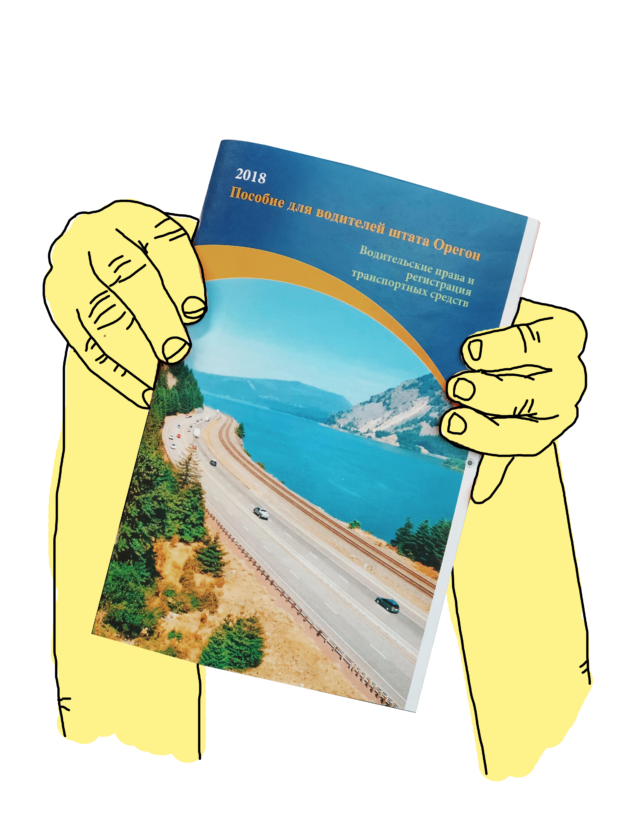Portland State’s Russian Flagship Program and the Portland Police Bureau collaborated to release Oregon’s first Russian translation of the Department of Motor Vehicles Driver Manual this February 2018. Members of Oregon’s Russian and Ukrainian populations previously requested Russian-language driving materials but until now a reliable translation had not been available.
PSU Assistant Professor of Russian Dr. Anna Alsufieva along with a team of interns created the initial draft of the Russian translation. “It turned out to be quite the undertaking, [but] we’re all more than thrilled with the end result,” said RFP intern Colton Hennick. “[Dr. Alsufieva] worked very closely with us, proofread and corrected certain aspects of the precise style of Russian required in official documents.”
According to a press release, PPB Lt. David Abrahamson applied for a grant for the project from the City of Portland in 2016 after noticing a rise in the number of traffic incidents and fatalities involving Russian immigrants. Abrahamson partnered with PPB’s Slavic Council Advisory Board that enlisted the help of PSU’s RFP, an immersive undergraduate language program for students looking to become proficient in Russian.
RFP interns invested over 300 personnel hours helping to create the first draft, while Alsufieva alone spent over 600 hours of her free time after class making technical corrections. Russian Oregon Social Services and former St. Petersburg, Russia Officer Vladimir Averyanov also assisted in proofreading.
The Oregon DMV only provides manuals in English, Spanish and audio format, even though 100,000 Russian-speaking Oregonians reside in the Portland Metro Area. While this new translation is unofficial, it’s an improvement to what Russian and Ukrainian Oregonians could access before.
California and Washington have Russian drivers manuals but, according to Alsufieva, the public cannot rely too heavily on them. The RFP found many of them to be poorly translated with too much of an English influence or too many colloquialisms. “We were not always satisfied,” Alsufieva said. The manuals also had to be reworked to adjust for variations in state regulations.
The Oregon DMV does offer the driver’s general knowledge test in Russian. However, Alsufieva added that people find the questions to be poorly written and strangely worded, so they often elect to take the exam in English. Being able to learn the material in Russian, Alsufieva explained, will make the test easier for Oregonians of Slavic descent.
The final steps in the process, according to the press release, involved reformatting the manual and preparing it for printing. This work was completed by PPB and Slavic Council members. Alsufieva hopes to have the manual available online soon.
“It was our goal to ensure that vital information such as traffic laws, policies and procedures be readily available to the Slavic communities of Oregon,” Hennick said. “We hope that this information will help keep our drivers more informed and our roads safer.”






